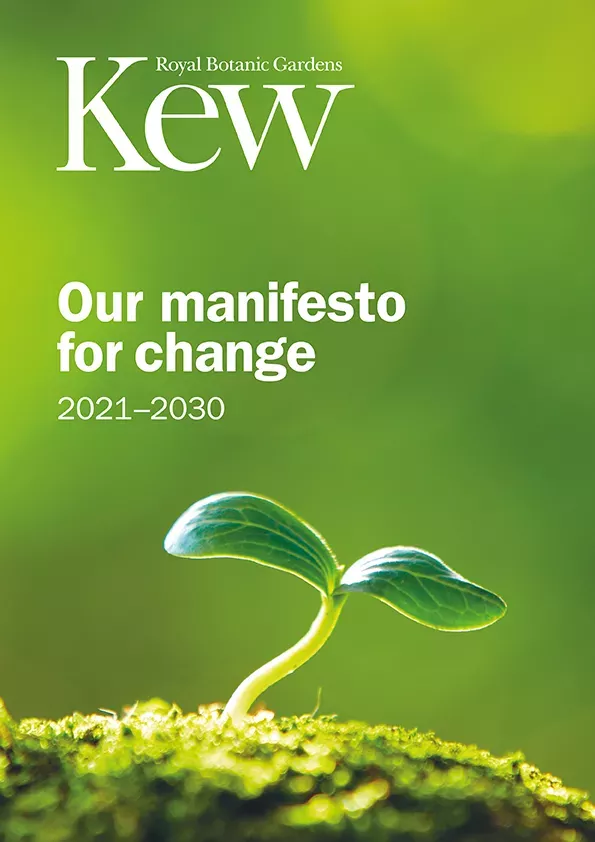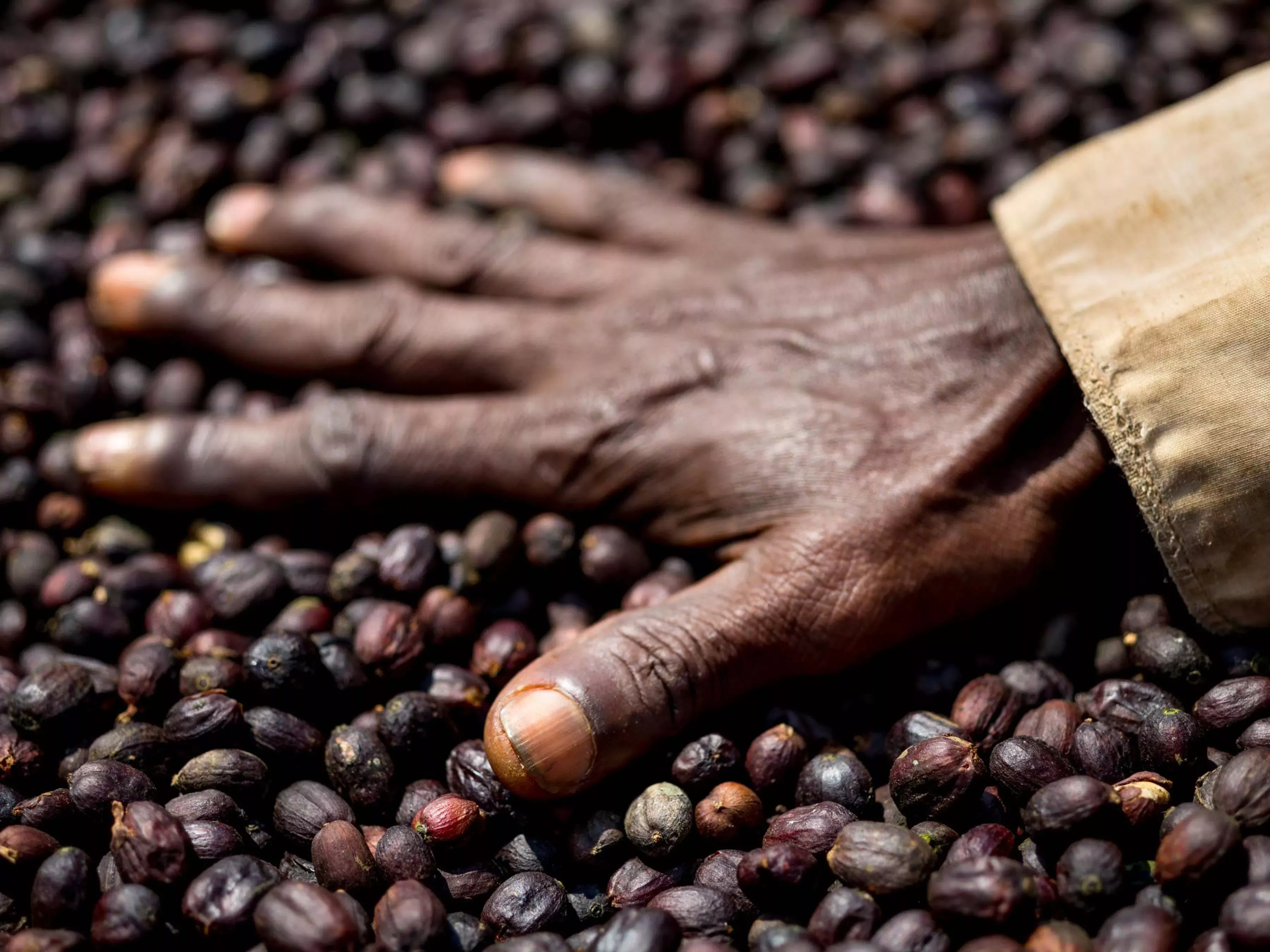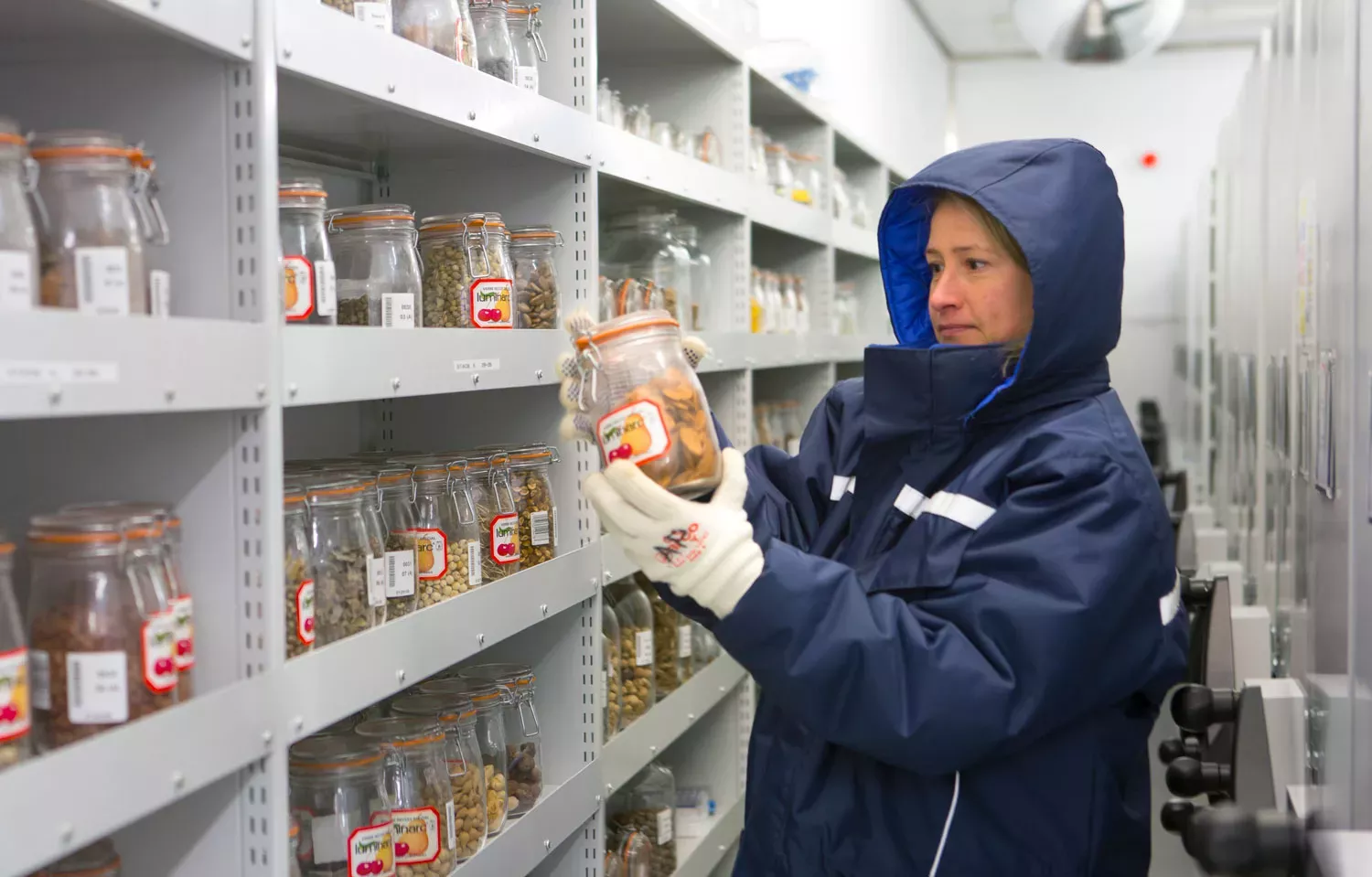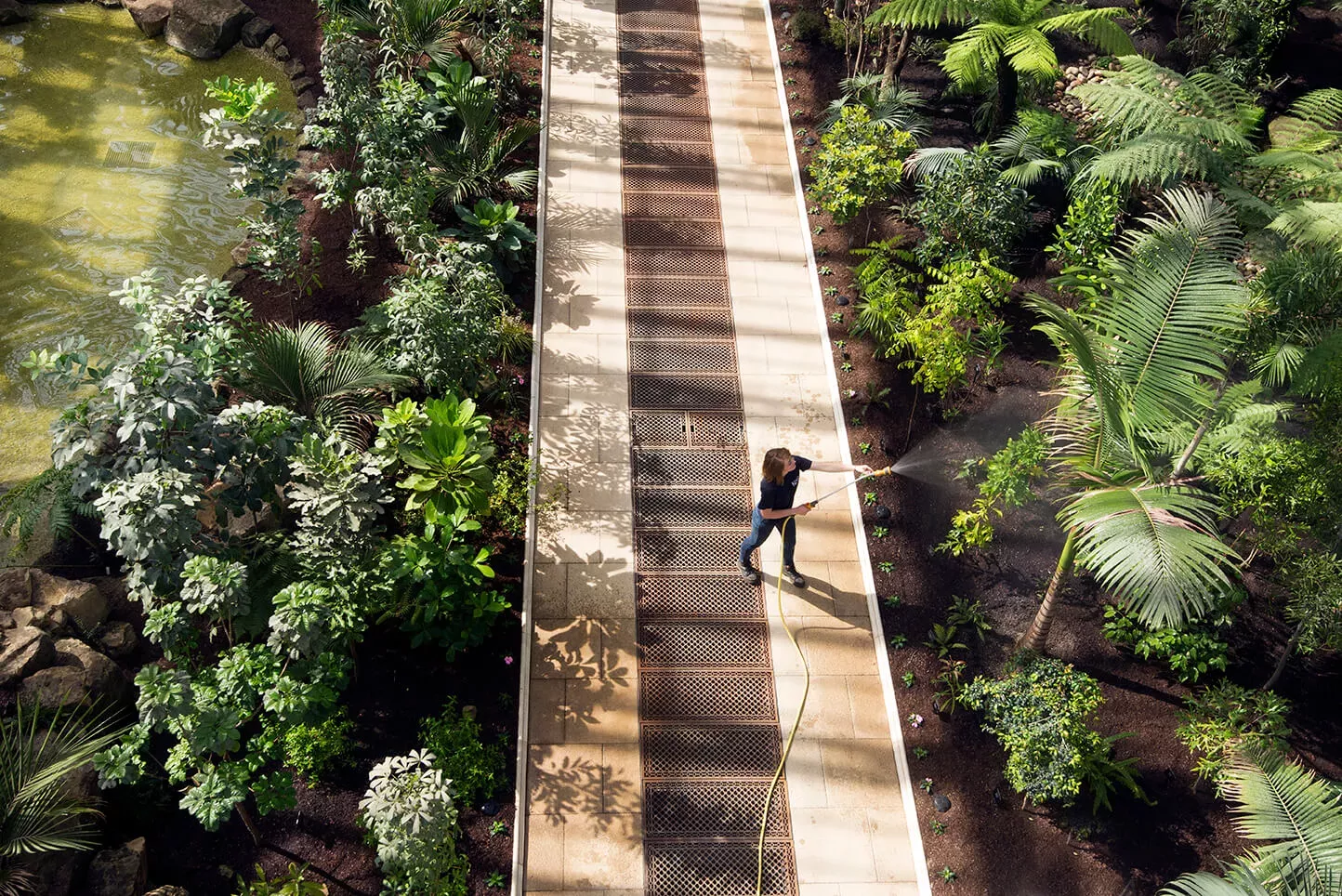Our manifesto for change 2021-2030
RBG Kew launches 10-year strategy to end extinction crisis and protect nature.
Release date: 2 March 2021

The Royal Botanic Gardens, Kew today releases ‘Our manifesto for change 2021-2030’, a new strategy mapping out its mission and areas of focus for the next decade. The world leading plant science institute pledges to intensify efforts to understand and protect plants and fungi, for the well-being of people and the future of all life on Earth.
The institution’s ultimate goal is step up to help to end the extinction crisis and contribute to creating a world where nature is protected, valued by all and managed sustainably. In the wake of a global pandemic, and with the future of the planet in peril, the strategy represents a public commitment by RBG Kew to do everything in its power to reverse the environmental devastation of biodiversity loss and climate change.
To deliver this mission, Our manifesto for change 2021-2030 centres around five key priorities for the coming decade. These commitments are based on how RBG Kew believes it can best deploy its expertise and other assets, including Wakehurst, its wild botanic garden in Sussex, to make a distinctive and substantial contribution to solving these global challenges.
- Delivering science-based knowledge and solutions to protect biodiversity and use natural resources sustainably: RBG Kew scientists will identify and strive to protect species of plants and fungi globally, as well as revealing those that could be new sources of food, medicine, fuel or materials.

- Inspiring people to protect the natural world: RBG Kew will promote and provide access to knowledge, ideas and beautiful gardens that motivate individuals to be advocates for nature.

- Training the next generation of experts: The world needs brilliant scientists and horticulturists. RBG Kew commits to training students from the UK and around the world.
- Extending our reach: RBG Kew is a public body and charity with global collections and influence. It must be for everyone, disseminating its knowledge and collections both physically and digitally for global benefit.

- Influencing national and international opinion and policy: RBG Kew will speak with confidence and prominence to advocate policies aligned with its mission. It will be an exemplar of environmental responsibility in all that it does, including by exceeding net-zero carbon emissions to become climate positive by 2030.

Director of RBG Kew, Richard Deverell, said: “All life depends on plants and fungi, but natural resources are being degraded and destroyed at a rate unprecedented in human history. We stand at a crossroads - the next decade will be critical if we are to reverse this environmental devastation. RBG Kew is perfectly placed as a globally revered plant science institute to lead efforts in creating a world where nature is protected, for the benefit of humanity and our planet.
“As Our manifesto for change demonstrates, we will no longer be silent. Drawing on our leading scientific research, unrivalled collections of plants and fungi, global network of partners, and our gardens at Kew and Wakehurst, as well as 260 years of history, we will seek to shape policy and practice in both the public and private sectors and lead by example as an advocate for environmental sustainability”.
Ends
Notes to Editors
Read Our manifesto for change 2021 — 2030
To learn more about RBG Kew’s work, including an upcoming episode on Kew’s work on equality, diversity and accessibility across horticulture and plant science, you can download the podcast series Unearthed: Mysteries from an Unseen World.
About the Royal Botanic Gardens, Kew
The Royal Botanic Gardens, Kew is a world-famous scientific organisation, internationally respected for its outstanding collections as well as its scientific expertise in plant and fungal diversity, conservation and sustainable development in the UK and around the world. Kew Gardens is a major international and a top London visitor attraction. Kew Gardens’ 132 hectares of landscaped gardens, and Wakehurst, Kew’s wild botanic garden, attract over 2.5 million visits every year. Kew Gardens was made a UNESCO World Heritage Site in July 2003 and celebrated its 260th anniversary in 2019. Wakehurst is Kew’s wild botanic garden in Sussex, home to Kew's Millennium Seed Bank, the largest wild plant seed bank in the world, as well as over 500 acres of designed landscapes, wild woodlands, ornamental gardens and a nature reserve.
The Kew Madagascar Conservation Centre is Kew’s third research centre and only overseas office. RBG Kew receives approximately one third of its funding from Government through the Department for the Environment, Food and Rural Affairs (Defra) and research councils. Further funding needed to support RBG Kew’s vital work comes from donors, membership and commercial activity including ticket sales.